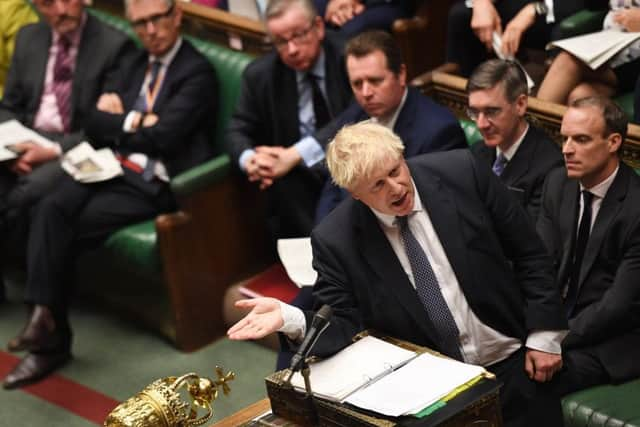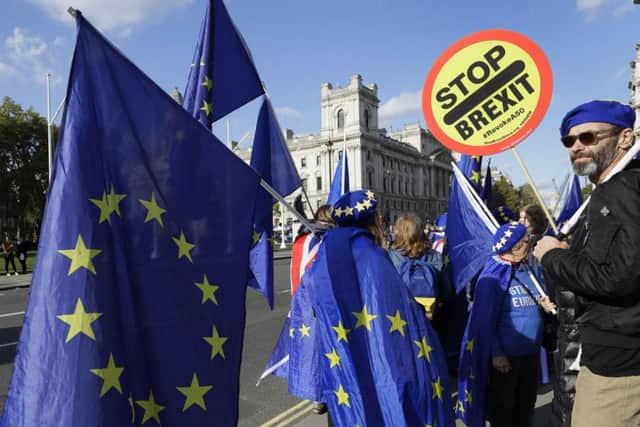How much longer can the Brexit process go on for?
Easily forgotten now that Boris Johnson’s “do or die” pledge is in tatters, is the fact that when MPs gathered for a historic Saturday sitting last week, the numbers were there to pass the Brexit deal and take the UK out of the EU by 31 October.


Brexit would be a week away had it not been for Sir Oliver Letwin’s amendment tying the ratification vote to passage of the Withdrawal Implementation Bill (WAB), with its 110 pages of detail on how the terms of the UK’s departure would be implemented. It’s a recurring theme: once parliamentarians actually know what it is they’re being asked to vote for, they’re suddenly less enthusiastic.
Advertisement
Hide AdAdvertisement
Hide AdThe cruellest irony is that the architect of Mr Johnson’s humiliation – Sir Oliver, who was thrown out of the parliamentary Conservative Party for rebelling to stop a no-deal Brexit – voted with the government.
But Mr Johnson lost the second vote on the timetable for the legislation because MPs didn’t trust his commitments on workers rights and environmental protections, and wouldn’t tolerate sending the bill on a break-neck, two day sprint through the Commons.
A significant delay


The result is that a significant delay is all but guaranteed, and a winter election seems inevitable. Once the Letwin amendment was passed, Mr Johnson was forced to ask for a delay until at least 31 January under the terms of the Benn Act. His petulant gesture of sending one unsigned letter, and two more saying he didn’t want a delay, gave Downing Street the headlines it wanted but had no practical impact.
Likewise, appeals from Brexiteers for EU leaders to veto an extension have been ignored. Viktor Orban, the Eurosceptic strongman prime minister of Hungary, and French President Emmanuel Macron, whose frustration at the endlessness of Brexit distraction for Europe, were touted as leading candidates to block a delay. But neither are willing to further disrupt the EU by undermining unity on Brexit. The consensus is to allow a delay, which could be confirmed as early as tomorrow.
What then? It depends how long the delay is for – but again, the EU is expected to stick to the script. The French government would like to see pressure on MPs ramped up with a short extension. It made the same case when Theresa May put in the request for a delay in Spring and lost the argument – with Macron largely vindicated by the way events have unfolded.
General election
But his stock has fallen with France’s objections to EU enlargement in the Balkans, and circumstances in the UK have also changed – the deal now on offer is less advantageous for all sides, the deadlock in parliament has deepened, and the sense that a general election is the only way out is felt in Brussels as much as London. Leaving space for that to happen is in everyone’s interests.
Confirmation of a 31 January extension removes that last excuse for the opposition to hold off on voting for a general election. With Labour trailing the Tories in the polls by 15 per cent or more, and Labour MPs fearful of either being seen to have blocked Brexit or going into an election with Jeremy Corbyn as leader – or both – it’s understandable why enthusiasm is limited. In Scotland, among all parties, there is also little excitement at the prospect of a campaign fought in the freezing cold, snow and rain, and many hours of darkness. Turnout could be low, benefitting the most energised – the SNP and the Lib Dems.
As Mr Johnson himself said in the Commons – there can’t be much more of this. The government doesn’t want its Brexit deal amended out of recognition by the opposition. His advisor Dominic Cummings wants his people versus parliament campaign. The country and the continent need an escape.
The answer is close at hand.